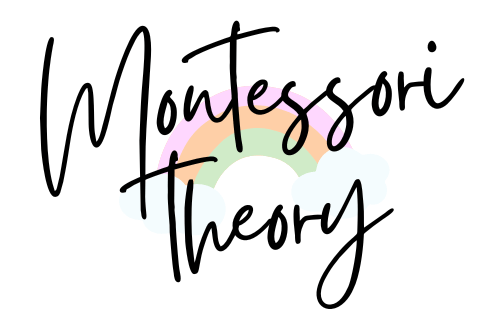Waldorf Education, grounded in Rudolf Steiner’s anthroposophical philosophy, integrates the spiritual and ethical alongside academic learning. Its distinct pedagogical characteristics, such as the social and integrative approach, self-governance, unique curriculum and specialized teacher training, make it stand out. The curriculum’s focus on artistic learning, emotional intelligence, and a connection with nature prepares students to be well-rounded individuals attuned to their surroundings. Waldorf’s future lies in maintaining its core principles while adapting to the evolving demands of our world.
Exploring Waldorf Education Approach
-
Origin and Global Spread
Waldorf education, initiated in 1919 with the opening of the first Waldorf School in Stuttgart, has since achieved a global presence. Developed over a century ago, this educational model has expanded worldwide, reflecting its adaptability and appeal across various cultural contexts.
-
Spiritual and Philosophical Foundations
Integral to the essence of Waldorf education is its spiritual and philosophical foundation, deeply rooted in Rudolf Steiner’s anthroposophical philosophy. This philosophy, a cornerstone of Waldorf methodology, emphasizes the harmonious development of the spiritual and ethical dimensions alongside academic learning. Steiner’s vision was to create an educational system that nurtures the whole child – mind, body, and spirit – preparing students not only academically but also equipping them with a strong moral compass and a profound sense of interconnectedness with the world. This spiritual and ethical focus is interwoven throughout the Waldorf curriculum, making it a distinctive feature of its pedagogical approach.
-
Pedagogical Characteristics
Waldorf education is distinguished by its unique pedagogical features, including:
- Social and Integrative Approach: Emphasizing inclusivity and collective learning.
- Self-Governance: Promoting autonomous and collaborative school management.
- Unique Curriculum: Tailored to foster holistic development.
- Class Teacher Principle: Continuity in teaching up to the 8th grade.
- Specialized Teacher Training: Dedicated training programs for Waldorf educators.
These characteristics collectively define the essence of Waldorf education, contributing to its distinct educational philosophy and approach.
Social and Integrative Approach in Steiner Waldorf Education
-
Inclusive Foundations
The genesis of Waldorf education lies in Rudolf Steiner’s visionary concept of an educational institution accessible to children from all social strata. This idea was revolutionary in creating a learning space where children, irrespective of their parents’ academic or socioeconomic status, could learn together. This foundation of inclusivity is a cornerstone of the Waldorf education, fostering a diverse and cohesive learning environment.
-
Educational Outcomes
Waldorf education’s effectiveness is reflected in the significant achievement of its students, particularly notable in the high rate of students obtaining academic qualifications. For instance, in Germany, a considerable number of Waldorf students successfully attain the Abitur, the German secondary education qualification, underscoring the efficacy of this educational approach in promoting academic excellence.
Self-Governance in Waldorf Schools
-
Structure and Decision Making
Waldorf Schools stand out for their distinctive approach to self-governance, characterized by the absence of traditional hierarchical systems. Instead, these schools embrace a more collaborative framework, where the faculty actively participates in vital decision-making processes. This approach is deeply rooted in the philosophy of fostering autonomy and collective responsibility among educators, significantly influencing the school’s pedagogical, financial, and organizational aspects.
-
Challenges and Evolution
However, this model of self-governance is not without its challenges. Waldorf Schools have faced issues related to the efficiency of decision-making and communication. These challenges have led to a growing recognition of the need for professional management training to enhance these aspects. As a result, there has been an evolution in practices within Waldorf Schools, with a greater emphasis on balancing pedagogical ideals with effective management and organizational skills.
Waldorf Curriculum
-
Pedagogical Motives
The Waldorf curriculum is underpinned by a commitment to fostering student development through a holistic educational approach. This curriculum is meticulously designed to support the overall growth of students, encompassing not just academic learning but also emotional and personal development.
-
Teaching Methodology
A notable aspect of the Waldorf curriculum is its emphasis on integrating arts and crafts into the learning process. This approach is based on the belief that emotional and personal development forms a crucial foundation for intellectual growth, thereby enriching the educational experience.
-
Student Experience
Students in Waldorf schools tend to develop a strong connection with the curriculum content. This deep engagement stems from a curriculum that is not solely focused on academic achievements but also on nurturing intrinsic motivation and fostering personality development. Such an environment encourages students to find personal meaning and satisfaction in their learning journey.
-
Critical Perspectives
Despite its strengths, the Waldorf curriculum faces certain challenges, particularly in addressing gaps in classroom teaching and meeting the specific needs of various subjects. These challenges highlight the need for ongoing evaluation and adaptation of teaching strategies to ensure that the curriculum remains effective and relevant to the evolving educational landscape.
The Class Teacher Principle in Waldorf Education
-
Role and Impact
In Waldorf Schools, the class teacher principle plays a pivotal role, especially during the first 8 grades. A class teacher, responsible for guiding the same group of students through these formative years, is instrumental in building a strong educational foundation. This continuity allows for the development of deep and meaningful relationships between the teacher and students, fostering a stable and nurturing learning environment.
-
Opportunities and Risks
While this approach offers continuity and emotional security, it also presents challenges, particularly when the teacher-student relationship encounters conflicts or mismatches in learning styles and needs.
-
Evolving Practices
In response to evolving student needs and educational paradigms, some Waldorf Schools are contemplating modifications to the class teacher period. This includes discussions about reducing the duration or integrating more specialized teachers in higher grades to better cater to the diverse and changing needs of students. Such adaptations aim to balance the benefits of continuity with the necessity of addressing individual student growth and development.
Waldorf Teacher Training
-
Training Models and Outcomes
Waldorf teacher training encompasses a variety of paths, balancing specific Waldorf pedagogical approaches with traditional university education. This dual focus ensures that Waldorf teachers are well-equipped with both the ethos and methodologies unique to Waldorf education, as well as a broader educational perspective.
-
Challenges and Future Directions
A significant challenge facing Waldorf education is the aging population of its teachers. Future directions include adapting teacher training to contemporary social realities and enhancing professional development programs. This adaptation is crucial to attract and prepare a younger generation of educators who can carry forward the Waldorf tradition while addressing modern educational needs.
The Evolving Journey of Waldorf Education
In wrapping up, Waldorf education’s blend of intellectual, artistic, and practical learning, deeply connected to nature, equips students for the complexities of today’s world. Facing forward, Waldorf must address challenges such as technological integration and community diversification. Its enduring relevance and success will depend on its ability to evolve while preserving its foundational values, ensuring it remains a dynamic and pertinent educational path.




